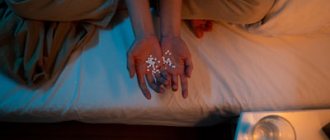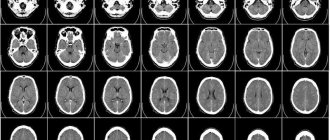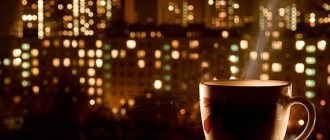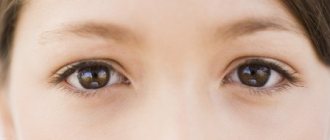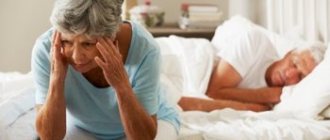Who among us has not heard elderly parents or other relatives complain about poor sleep? Do they tell you how difficult it is to fall asleep, how unpleasant it is to wake up suddenly in the middle of the night, how early the morning comes now? Pensioners often feel that they are not sleeping in the full sense of the word, but as if they are gliding on the surface of sleep, and any even faintly perceptible sound can wake them up. As a result, in the morning, older people lack their usual vigor, and, as a result, a loss of strength sets in, and anxious thoughts become more active.
A familiar picture: an old man wandering absent-mindedly around the apartment and it looks like he is in a somnambulistic state? Such symptoms of sleep disturbance resemble manifestations of Alzheimer's disease: memory suffers, attention decreases, simple logical tasks cause difficulties, coordination of movements is impaired, falls are possible, and reaction time slows down.
According to neuroscientists from the USA, special neurons responsible for inhibition of the nervous system are “to blame” for age-related sleep disorders. A good, full night's sleep is possible only with complete peace of mind, which these neurons provide. Unfortunately, as we age, the number of brain cells decreases: neurons experience oxygen starvation, their size decreases, they die, and accordingly, the risk of insomnia increases significantly.
Of course, insomnia plagues many, and age is not a prerequisite for it, but after 60 years, the fight against it becomes much less successful, and the inconveniences it causes gradually turn into serious problems. Young people often toss and turn, unable to sleep, when they are overwhelmed with worries about the events of the past day or are in anticipation of upcoming events, so episodes of poor sleep in the younger generation occur only from time to time. Elderly people, as a rule, very quickly acquire a chronic form of insomnia, which brings discomfort not only to their lives, but also to the lives of their loved ones. Of course, older people a priori sleep less and in a completely different way than young people: old people are little physically active, their social circle is forced to be limited, and the range of their mental tasks is narrowed. They usually go to bed early and get up early, and their sleep time at night is also reduced, and this is normal. However, regular insomnia, which interferes with adequate social and physical functioning, requires immediate attention to a specialist.
Gerontological specialists conducting research in nursing homes in the Leningrad region found out why night sleep is so important for the elderly. And here are the conclusions they came to:
- Sleep helps maintain immunity, which is important for being able to resist seasonal diseases and age-related ailments.
- Sleep perfectly restores strength, which is extremely useful for increased fatigue, which is typical for 100% of older people. Insomnia is exhausting, depriving you of the opportunity to live a full life, to be active and optimistic, because there is simply no physical strength left for this.
- Sleep prevents rapid wear and tear of the body and preserves the optimal functionality of systems and organs for a given age.
- Sleep helps strengthen memory, improve coordination of movements, maintain attentiveness and clarity of mind: in old age and close to it, this is very valuable.
Causes of insomnia
There are many causes of insomnia; they can be roughly divided into several groups.
Physiological
Somatic diseases: cardiac and infectious diseases, snoring and sleep-disordered breathing, arthrosis, arterial hypertension, diabetes mellitus, hormonal disorders. Usually at night, pain symptoms intensify, various unpleasant sensations arise, due to which sleep does not occur or lasts only superficially.
Psychological
Stressful situations, prolonged mental stress, prolonged depression, various types of neuroses. They can cause both short-term - from one night to a week, and chronic insomnia - from three weeks or more, of varying degrees of severity.
External reasons
- Violation of the daily routine - night work, time zone change, frequent business trips, increased physical activity.
- Excessive passion for energy drinks, strong coffee and tea, alcohol.
- Overeating or fasting at night.
- Abuse of gadgets.
- Taking certain medications.
- Elderly age.
Why can insomnia be dangerous?
- It causes a progressive feeling of fatigue until complete loss of strength.
- It gradually but inevitably worsens mood up to the point of anhedonia, when an elderly person completely loses the ability to enjoy anything.
- It contributes to the development of apathy and depression.
- It promotes permanent daytime sleepiness and, as a result, the manifestation of attention, memory, and coordination difficulties. An elderly person becomes forgetful, looks disorganized, and confused.
- It worsens anxiety and can cause nightmares.
- It provokes exacerbation of chronic diseases. Sleep disturbances are especially dangerous for patients with diabetes, people suffering from endocrine diseases, and those with problems with the cardiovascular system and gastrointestinal tract.
- Elderly people suffering from insomnia tolerate pain much worse. Exhausted by lack of sleep, pensioners become sensitive to the slightest changes in their health, to changes in the weather, and to fluctuations in the mood of household members.
Causes of insomnia in the elderly:
- psychological difficulties (anxiety, emotional problems);
- sleep apnea and other respiratory system disorders;
- pain;
- restless legs syndrome, which is expressed in painful sensations in the lower (and sometimes upper) limbs and an irresistible desire to move them in order to get rid of the unpleasant feeling;
- arrhythmia and other heart rhythm disorders;
- disruption of the natural rhythms of wakefulness and sleep;
- night cramps.
According to data provided by doctors at the Ropsha nursing home, external factors that can provoke or aggravate insomnia in old age are:
- Lack of constant flow of fresh air.
- A large amount of time spent with TV and/or computer.
- Noise background.
- Glitch in the daily routine.
- Poor nutrition, including abuse of fatty, fried, high-carbohydrate foods.
- Uncomfortable bed or unpleasant-to-touch bedding.
- Medicines whose side effects affect the quality of sleep (for example, diuretics, beta-agonists, certain drugs prescribed for hypertension, antiparkinsonian drugs, and others).
In nursing homes, elderly people face the problem of poor sleep every day. In such cases, elderly patients are prescribed physiotherapy and medications that help normalize the rhythms of sleep and wakefulness and help stop night vigils. It is important that the fight against insomnia takes place under the supervision of a doctor. However, many people try to cope with the problem of poor sleep on their own by starting to take “proven” medications.
The following types of sleeping pills are commonly used:
Histamine antagonists. They are effective and completely safe. Not addictive. Side effects include difficulty concentrating and lethargy during the day.
Anxiolytics . They have anti-anxiety properties, promote rapid falling asleep and deep sleep. May cause daytime drowsiness, dizziness, headaches, and excessive sweating. Cause addiction after a long period of use.
Barbiturates. Under their influence, nerve cells become less active, which has a positive effect on the speed of falling asleep. They disrupt sleep physiology. They are addictive.
Adaptogens. Products such as Melatonin relieve the emotional consequences of stress, normalize hormonal levels, and help regulate circadian rhythms. Not addictive.
But is it wise to take medications for insomnia without a doctor's prescription? Remember:
- the metabolism of an elderly person occurs extremely slowly, so sleeping pills may have little effect in the evening, but have a negative effect on daytime activity;
- some medications that inhibit the nervous system can have a depressing effect on the functioning of the body;
- it is important to analyze the compatibility of the chosen remedy with all medications that the elderly person is currently taking (and this, most likely, is not an easy task);
- drugs that speed up the process of falling asleep in the evening, according to statistical data, increase the likelihood of sudden death;
- sleeping pills do not treat the cause of the disease, are you ready to stuff your old man with pills for the rest of his life?
The fight against senile insomnia should be comprehensive, while in private boarding houses for the elderly in St. Petersburg, non-drug methods of therapy that do not cause addiction become a priority.
These include:
- Homeopathy. In addition to taking traditional herbal remedies (motherwort, valerian, peony root, mint or lemon balm), some private nursing homes practice consultations with naturopaths who select natural medications individually for each patient with insomnia. There is a serious reason for this, since in old age people, as a rule, are forced to take an impressive amount of medications every day, and if there is an opportunity to protect the liver and create conditions for the body’s self-healing, there is no need to give it up.
- Aromatherapy. The smell of fresh lavender, laid out on the windowsills by the caring hands of the staff of the Ropsha boarding house, located in the Leningrad region, unobtrusively creates a peaceful mood among the guests. Small pillows with mint, sage, valerian, placed near the head of the bed, also help you fall asleep quickly and have a restful sleep. It is precisely by such little things that one can determine the quality of services in a private nursing home.
- Electrosleep therapy. With the help of low-frequency electric current pulses, the inhibitory processes of the central nervous system are enhanced. In addition, in older people, blood circulation improves, breathing problems are eliminated, and redox processes are activated.
- Color therapy. Color has a positive effect on the nervous system.
- Oxygen therapy. Procedures using oxygen (inhalation, pressure chamber) are very popular among nursing home residents. They say that old people are like children, and it’s true - they especially love oxygen cocktails. Additional portions of O2 help strengthen the immune system, saturate cells with oxygen, better tissue regeneration, and reduce sensitivity to pain.
- Darsonval therapy. The effect of a small current on the collar area and head reduces blood pressure, eliminates headaches, and creates a balance between the processes of inhibition and excitation in the central nervous system.
- Mesodiencephalic modulation method. Low frequency impulses effectively help in the fight against depression and insomnia.
- Physiotherapy. Physical activity is the key to a good mood, sound sleep and longevity.
- Consultation with a psychologist. Talking through your feelings, voicing disturbing thoughts means a lot to an elderly person. In the process of working with a psychologist, older people develop useful behavioral skills that subsequently contribute to good sleep.
In addition, much attention is also paid to the daily routine, nutritional culture, walks in the fresh air, organizing exciting leisure activities, and regular examinations by a doctor who monitors health and sleep quality.
Diagnosis of insomnia
Diagnostic measures are necessary to confirm the diagnosis and identify the cause of insomnia.
Anamnesis collection.
Sometimes a survey helps to identify hidden psychological reasons.
Inspection.
Assessment of appearance, blood pressure, pulse, skin and sclera condition.
Laboratory tests of blood and urine.
Polysomnography
— a comprehensive examination of a person during sleep.
You cannot diagnose yourself and choose a remedy for insomnia on your own. In addition to the help of a therapist, you may need to consult a neurologist, psychologist or psychotherapist.
How to overcome insomnia?
Both medicinal and non-medicinal methods are used to treat insomnia:
- maintaining sleep hygiene;
- psychotherapy;
- physiotherapy, massage;
- relaxation techniques, breathing exercises, etc.
For acute insomnia, specific treatment is usually not required; removing the trigger that prevents you from falling asleep is sufficient. Chronic and short-term forms of insomnia are important to monitor together with your doctor. The specialist will determine the cause of insomnia and, if necessary, prescribe a course of sedative or hypnotic medications. These can be herbal medicines (Persen, Novo-Passit, etc.), melatonin-based medicines (Melaritm, Melaxen, etc.) or more serious prescription medications.
The drugs have contraindications. The attending physician should prescribe the drug and determine the dosage.
Treatment of insomnia in Moscow
Treatment for sleep disorders is not only symptomatic. To restore normal sleep and wakefulness, it is necessary to determine the cause of insomnia and, if possible, eliminate it. This is done by narrow specialists - somnologists.
If sleep disturbances are not a symptom of another disease, treatment comes down to behavioral therapy. Doctors recommend going to bed and getting up at the same time, sleeping 7-8 hours a day, not drinking tea and coffee at night, smoking less, walking and exercising more. . Meditation and massage help you relax and fall asleep faster.
Cognitive therapy, either individual or in a group, aims to address the psychological causes of insomnia, such as stress and anxiety.
The quality of night's rest depends on the sleep hormone melatonin. It is produced only in the dark, so doctors recommend avoiding evening gatherings in front of the monitor and bright lighting in the bedroom.
If behavioral therapy is not effective, switch to drug treatment. Under no circumstances should you self-prescribe medications; this should only be done by a specialist. Doctors (Moscow, Central Administrative District, Baumanskaya metro station) determine the nature of insomnia, develop an individual program for restoring sleep, and, if necessary, select the optimal option for drug therapy.
general description
In medical reference books, when describing somnological disorders, they usually limit themselves to the phrase that night sleep is extremely important for the body and represents one of the main mechanisms of adaptation and recovery. But not every doctor can formulate why night rest is so important, and the consequences of not only lack of sleep, but also disruption of biorhythms (late falling asleep and, accordingly, waking up closer to lunch).
During wakefulness, we receive a lot of different information through external, so-called exteroceptors. After falling asleep, they “turn off” and the central nervous system “switches” to processing these impulses. By the way, this is precisely what explains “prophetic” dreams: there is nothing supernatural in such a phenomenon - it is simply an analysis of information that a person might not have paid due attention to, and its visualization in the form of certain images and dreams.
In addition, in the dark, the production of the hormone melatonin begins, which not only regulates biological rhythms (they are also called circadian), but also generally contributes to the normalization of metabolic and regenerative processes. Chronic insomnia has been found to be the cause of:
- weakening of immune defense and susceptibility to respiratory viral infections;
- dysfunctions of the digestive tract (in people suffering from insomnia, colitis, gastritis, and peptic ulcers are much more often diagnosed);
- neurological disorders;
- memory impairment;
- diseases of the cardiovascular system;
- endocrine pathologies (in particular, insomnia is associated with dysmenorrhea, infertility, diabetes, hypo- and hyperthyroidism);
- psycho-emotional deviations.
People suffering from chronic insomnia often face problems of excess weight due to impaired metabolism and lipid metabolism. It is much more difficult for them to lose weight due to poor diet and exercise intolerance.

